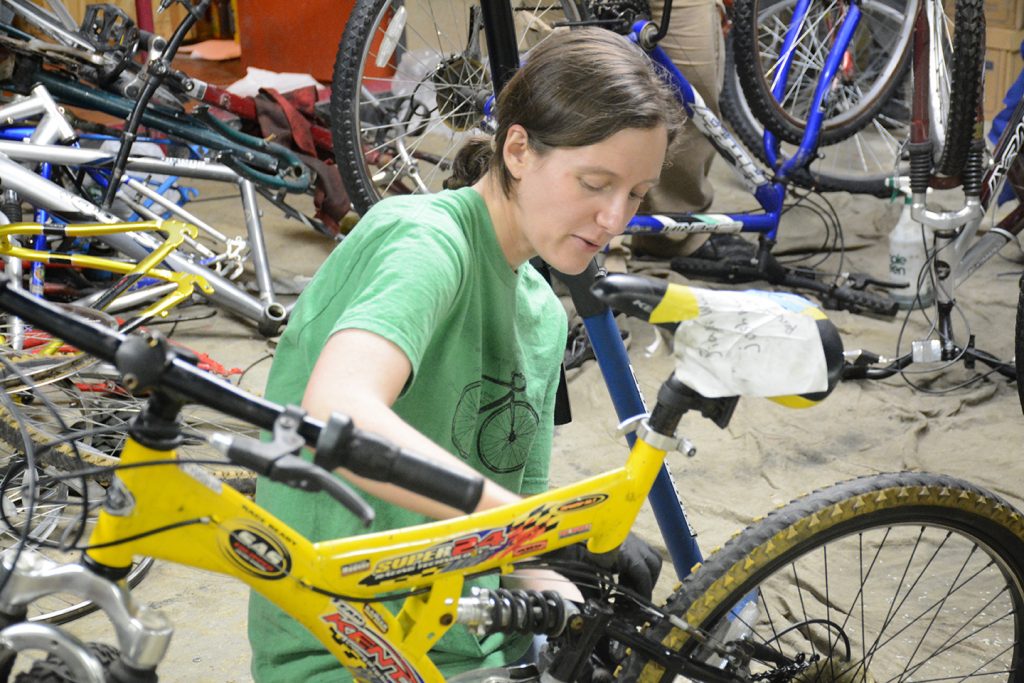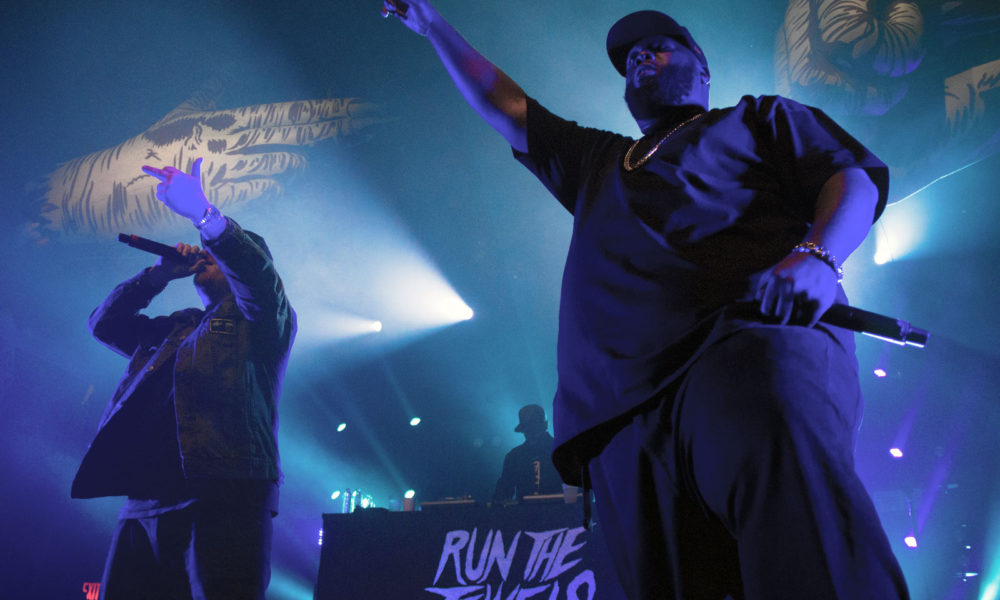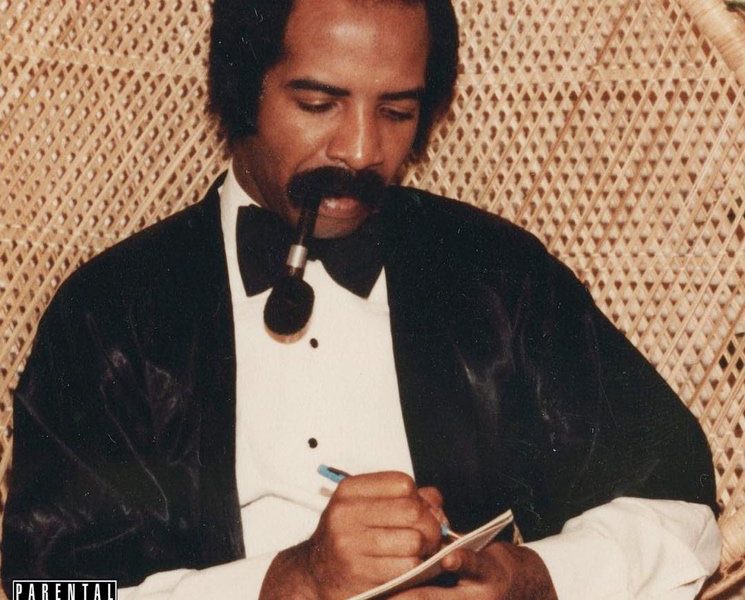Moving from person to person, bike to bike, giving advice and getting her hands dirty, Jennifer Everhart never stays still at the dingy bike workshop in the Stony Brook Student Union basement.
A small entourage trails behind her, like a flock of ducklings following their mother— they’re barraging her with questions, asking for help, but for every problem she solves, two more pop up.
“Sorry, we’re just crazy busy tonight,” she says between breaths. “It’s spring, so we’ve got lots of students coming in to fix their bikes.”
Everhart is the president of the Stony Brook Freewheel Collective, a campus club that teaches students proper bike repair and maintenance. The club has had a strong presence on the campus for more than a decade, but it got its start in a Huntington basement over 14 years ago.
“A couple of grad students from the ecology department used to go dumpster diving for bikes. they’d fix it up at someone’s basement and bring the finished bikes on campus to give away.” Everhart says.
This small community eventually grew into an established organization on campus. They now receive funding from the Graduate Student Organization and aid from the University Police Department (UPD).
But while the club teaches students bike repair on personal and donated bikes, Everhart, like most students who join, doesn’t have a mechanical background.
Everhart, a 29-year-old archaeology graduate student, grew up in western Ohio, or how she puts it, “way out in the middle of nowhere.”
She learned how to ride bicycles at a young age, and eventually she developed an interest in mountain biking.
She began the graduate program at Stony Brook University in Fall 2008, just a short time after that she joined the collective.
“I got started about halfway through my first semester of grad school, I was biking to the hospital through the parking garage and I got a bad flat tire, completely blew out the wheel,” Everhart says. She found out about the club when she came to school “grumbling” about the costs of repairs, until a graduate student told her about a repair-shop on campus.
While she was an avid bicyclist, she didn’t have much experience with repairing bikes. Everhart took to the strategy of learning by doing and it’s the strategy many in the club have to take due to a shortage in people with mechanical backgrounds.
Every time a new person walks into the bike shop, Everhart greets them with a smile but refuses to shake their hand. “I have way too much grease on my hands,” she says.
Everhart repeats this dance every week because of the constant influx of new members joining the club to repair bikes and meet people.
Dasha Korolev, a 21-year-old history senior from Georgia, recently joined the club and enjoyed the “hands on” aspect of the repairing, but she felt a bit directionless without assistance from one of the mechanics.
David Hewitt, a 28-year-old chemistry graduate student from Brooklyn, says that he thinks Everhart is “really cool” but he felt a little irritated after spending a lot of his time waiting for advice from Everhart or one of the other mechanics. Although he is learning, it takes a lot of time.
“It’s a commitment,” says Everhart. Although the club does try to hold workshops to train new mechanics, its difficult to find people who are willing to put in the time and effort to be able to help others.
Another problem comes from a unique aspect of the club’s relationship with the UPD.
While patrolling the campus, UPD tickets bikes that look abandoned. After 30 days, the UPD takes the bikes and stores them. After 30 or more days, UPD gives these bikes to the Freewheel Collective.
The collective uses these bikes for parts or, if they’re in good condition, as a bike that students could repair and take for themselves.
“People will come to us saying that their bikes got clipped and we do our best to find them,” Everhart says, but more often than not the effort is in vain. A lot of these bikes aren’t found due to the “massive amount of bike thefts around campus” according to Everhart.
There is also an issue over not having enough supplies for all the club members, Everhart says. “Once in a while, we get people who are unhappy we don’t have bicycles or we don’t have a part they want.”
She estimates that the club is able to give away close to 30 bicycles per semester, but this isn’t always enough.
Even without the bikes and parts, the club is able to provide a unique service to the camps community: offering tools and advice on repairing personal bikes.
“Right now it’s just triage; we do the same four repairs over and over again,” she says. “Flat tires, squeaky chains, rusted chains, and bent derailleur pulleys.”
While she spends a lot of her time with the graduate program and helping people at the collective, Everhart still manages to get a lot of biking in to her schedule.
On most days she will ride her bike to the campus from her home. Even if it’s raining, she’ll “keep biking.”
“I actually don’t know how to drive. I don’t own a car,” Everhart says. “It is on the bucket list though.”




Comments are closed.